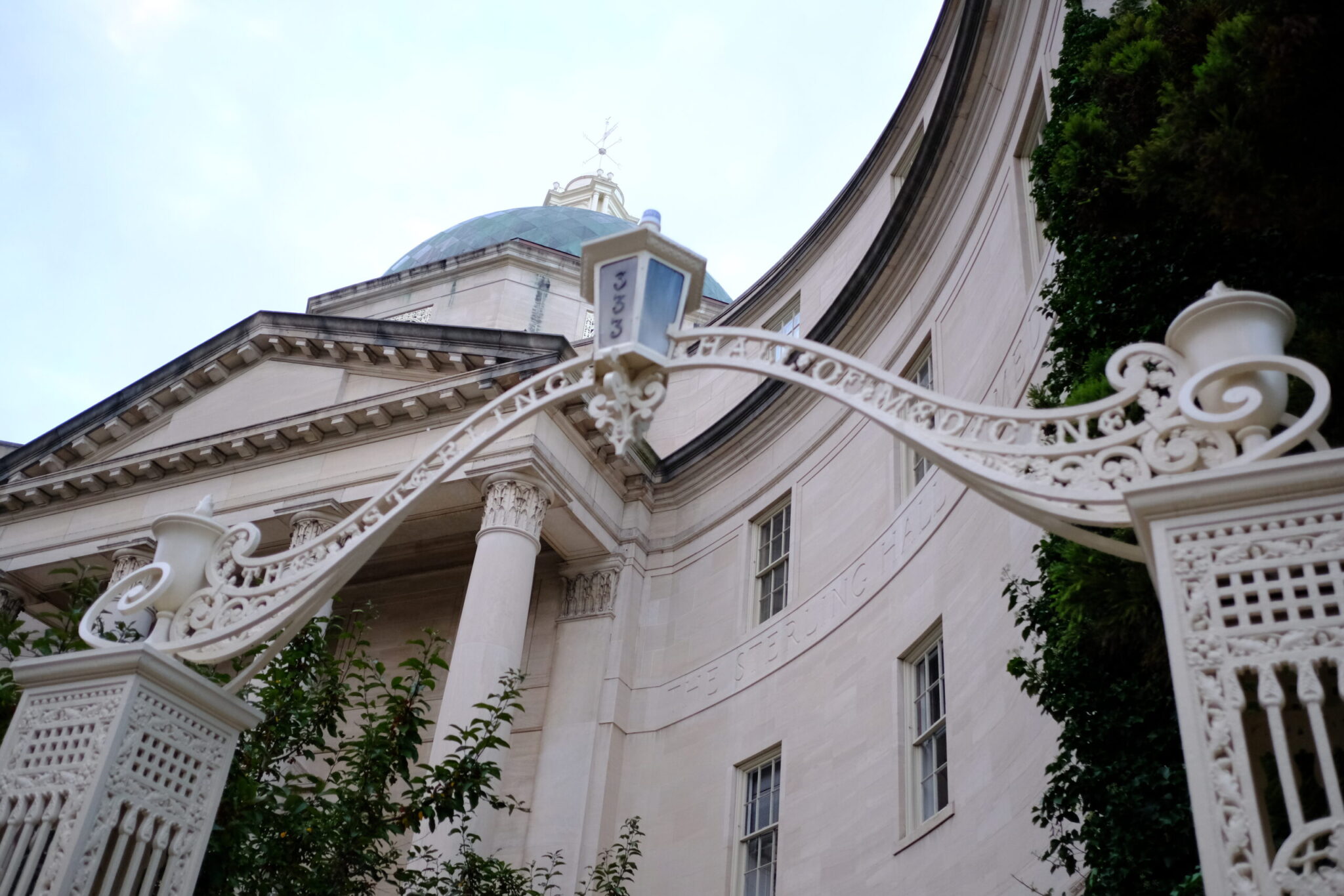Yale joins new Zuckerberg-funded biomedical research collaboration
The Chan Zuckerberg Biohub in New York plans to connect researchers to work on engineering immune cells to fight disease.

Ann Hui Ching
A new Yale collaboration hopes to shed new light on the body’s immune system — with major backers joining the project.
Last month, the Chan Zuckerberg Initiative, an organization co-founded and co-led by Facebook founder Mark Zuckerberg and Priscilla Chan, announced the launch of a new biomedical research hub in New York City that connects researchers from Columbia, Rockefeller University and Yale. Called the Chan Zuckerberg Biohub New York, or CZ Biohub NY, the center will be located in Manhattan, with satellite sites on the campuses of Columbia and Yale.
According to researchers involved, the Biohub hopes to invest resources into long-term biomedical research.
“The idea of these Biohubs is to bring people together from multiple disciplines, and tackle challenges that will take 10 to 15 years of risky work,” said John Tsang, the director of Yale Center for Systems and Engineering Immunobiology, who is on the leadership committee for the CZ Biohub NY and wrote the original research proposal for the project.
CZ Biohub NY is the latest research institute in the Chan Zuckerberg Biohub Network.
While each of the four institutes in the CZ Biohub Network focuses on different projects, the general goal of the research is to understand the mechanisms of disease and develop technology to help diagnose and treat diseases.
The CZ Biohub NY will focus on studying and bioengineering immune cells. As a systems immunologist, Tsang told the News he is interested in using the Biohub to explore how immune system cells detect and monitor disease in the body, even before disease symptoms are visible through outward observation.
“The immune system has been implicated in basically all diseases, because it’s the system where you have cells that go around your whole body, and the cells are monitoring what’s going on,” Tsang said.
Part of the Biohub’s work will be to understand how immune cells travel through the body and how they respond to new biological information.
The Biohub team will also work to engineer immune cells to detect abnormalities in tissues and repair damage before it leads to disease, according to Tsang. Tsang told the News that this kind of technology could be applied to predict and treat diseases including cancer and autoimmune conditions such as type one diabetes.
“It’s really like getting the Magic School Bus to work,” Tsang said. “That’s really super exhilarating in my mind.”
According to Andrea Califano, the president of the Chan Zuckerberg Biohub New York and the former chair of the Department of Systems Biology at Columbia University Irving Medical Center, this kind of research is not being done anywhere else.
Califano pointed to two major characteristics that make the Biohub’s goals achievable: its funding structure and collaborative model.
“It’s an entire new level of science that has to be achieved,” Califano said.
Funded through philanthropy, the Biohub operates on a predetermined budget, said Califano, allowing it to conduct high-risk research that would not typically be funded through public research grants such as the ones awarded through the National Institutes of Health. This funding allows the Biohub to do research far beyond the scale of a university lab, Califano said.
Califano said the Biohub draws together three complementary research institutions that have strengths in different areas of biology, immunology and data science to create a multi-institutional, interdisciplinary collaboration.
“When I initially was brought into the idea, I thought it was a little bit sci-fi, but then when I started working with my colleagues, we realized that all the main ingredients were actually there,” Califano told the News. “This is science that no university in isolation could perform.”
This scale of research is ambitious because there is still a lot about the immune system that scientists do not understand, said Andrew Wang, a physician and professor of rheumatology at the School of Medicine, who is not affiliated with the CZ Biohub New York.
The same immune cell can behave differently depending on the situation and location in the body, Wang added — a phenomenon that still baffles researchers. As a result, Wang said that the kind of research the Biohub will do will need to be a “simultaneous dive” into all aspects of the immune system. But Wang said he is optimistic about what the initiative could accomplish.
“It’s efforts like this that end up making big impacts,” he added. “I’m excited to see what comes out of it.”
The Chan Zuckerberg Biohub Network program was announced by Priscilla Chan and Mark Zuckerberg on Dec. 7, 2021.
Update, Nov. 11: This article was updated to reflect Andrea Califano’s current title. It was also updated to clarify language regarding the CZ Biohub Network and its leadership.







